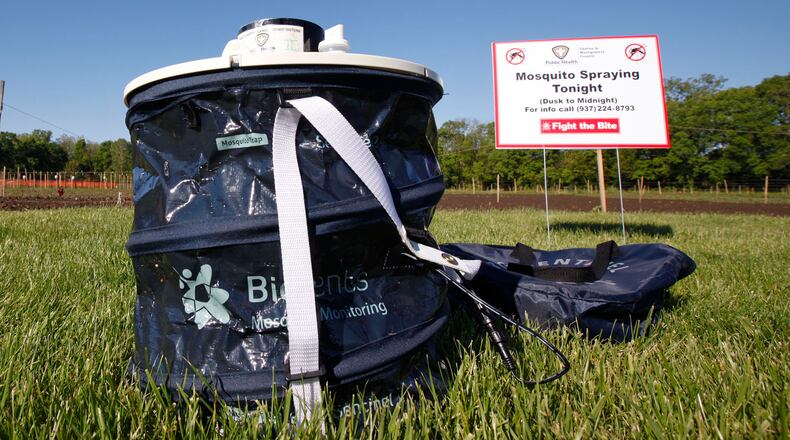West Nile virus is a virus most commonly spread by infected mosquitoes that can lead to severe fever, encephalitis (inflammation of the brain) or meningitis (inflammation of the lining of the brain and spinal cord).
Mosquitoes become infected when they feed on infected birds. Infected mosquitoes can then spread the virus to humans and other animals when they bite.
The mosquitoes were collected from Aug. 1-5. The Health District was notified on Tuesday the mosquitoes were positive for West Nile virus.
The area with the positive mosquitoes is south of state Route 725, east of Wilmington-Dayton Road, north of the Sugarcreek MetroPark and west of Lakeman Drive.
Greene County Public Health will continue to monitor adult mosquitoes in the surrounding communities.
Areas have been treated with larvicide to reduce the adult mosquito population.
Staff have been trapping mosquitoes since June 2021 and will continue to do so until October, concentrating on human population centers.
Greene County Public Health Commissioner Melissa Howell said in a statement to the public to be aware of their exposure to mosquitoes and to protect themselves by:
- Eliminating standing pools of water, such as birdbaths, gutters, old tires, unused pools, boats and buckets, particularly after rain events.
- Avoid shaded areas where mosquitoes may be resting.
- Limit outdoor activity during evening hours.
- Wear protective clothing such as light-colored, long-sleeved shirts and pants.
- Use insect repellents (those containing DEET can be very effective. Follow manufacturers’ usage recommendations).
About the Author

